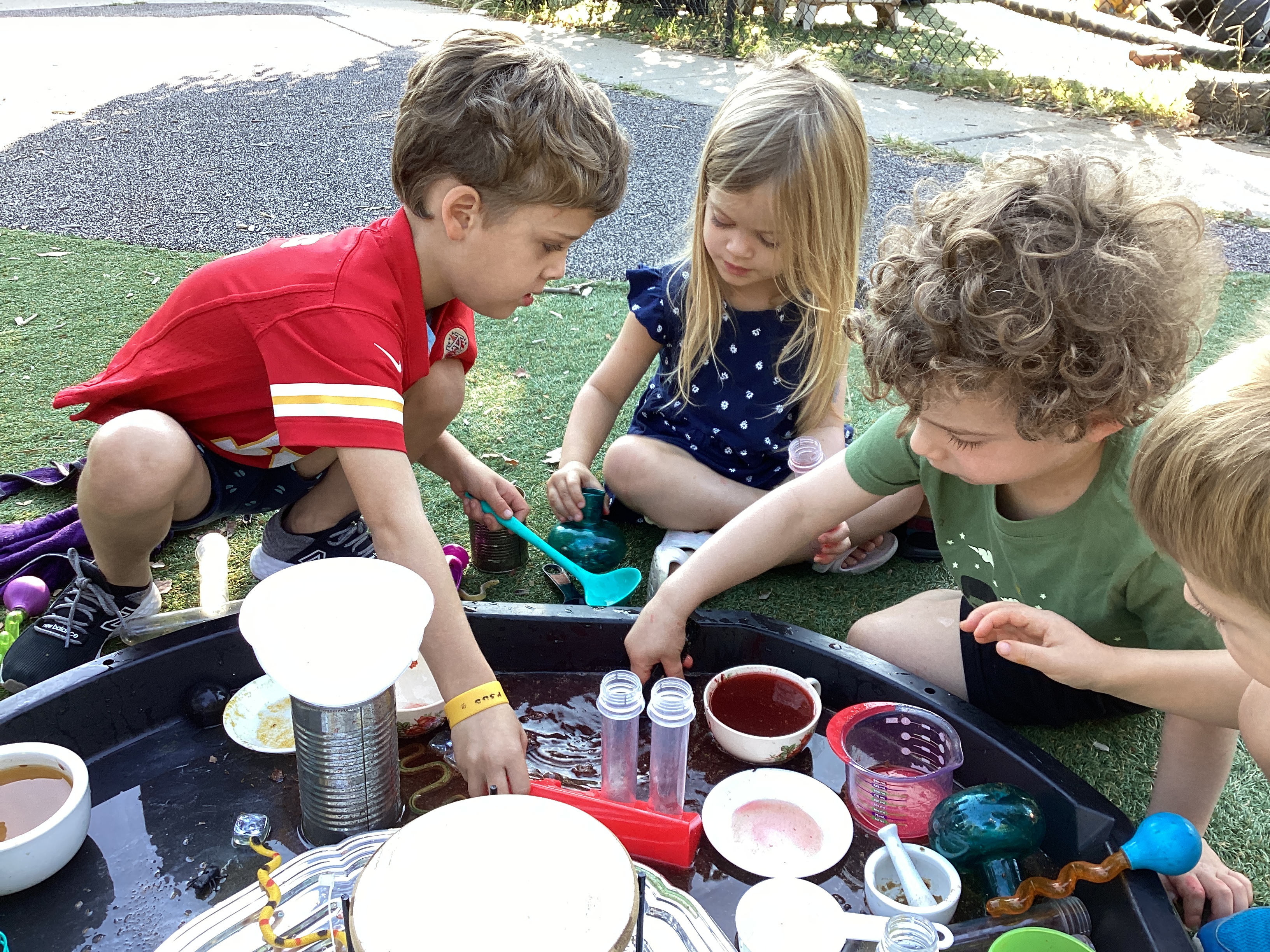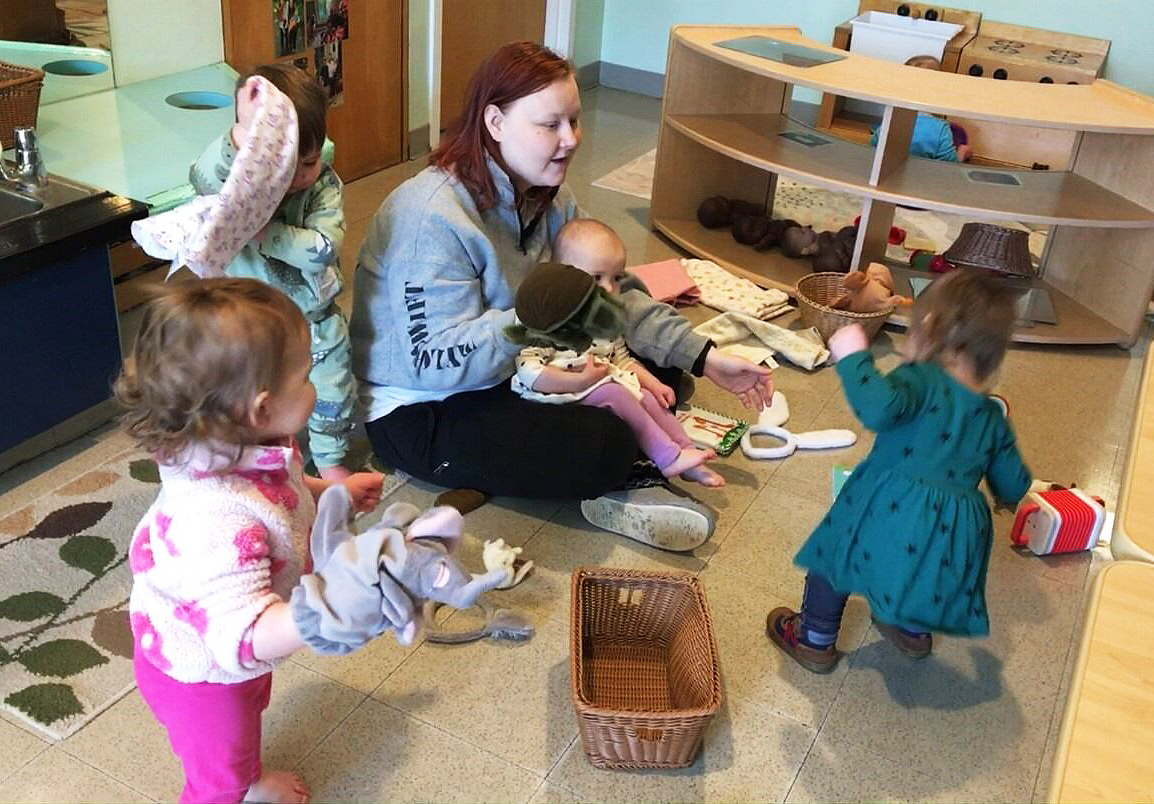Commonality: Interactive and Engaging Environments
Creates spaces that stimulate exploration, creativity, and social interaction.
Four Senses Potion Lab
The teacher set up a sensory experience through play provocation on the playground. The children were invited to explore spices, water, food color and other household items such as vinegar and baking soda to encourage observation through their smell and sight senses.

The teacher also included glass vase fillers and glitter to add more dimension and allow for sound and texture. The children were able to fill and pour, mix colors and textures, and observe volume. They were also able to practice sharing space and materials, independently explore the provocation, and interact with each other. Notice the concentration in the children’s faces and the conversations they have with each other!
Infant music and movement
Infants and teachers have a joyful shared experience as they dance and sing together.

Many skills are met through music and movement activities. Children move their bodies in various ways, demonstrating their perceptual motor skills, responsiveness to language, self-expression through dance, and social relationships with familiar adults and peers through imitation.
Early Childhood Education in Greater Kansas City
Share your stories
Submission form
Does your program have a story that exemplifies holistic development? Let us know and it might be featured here.